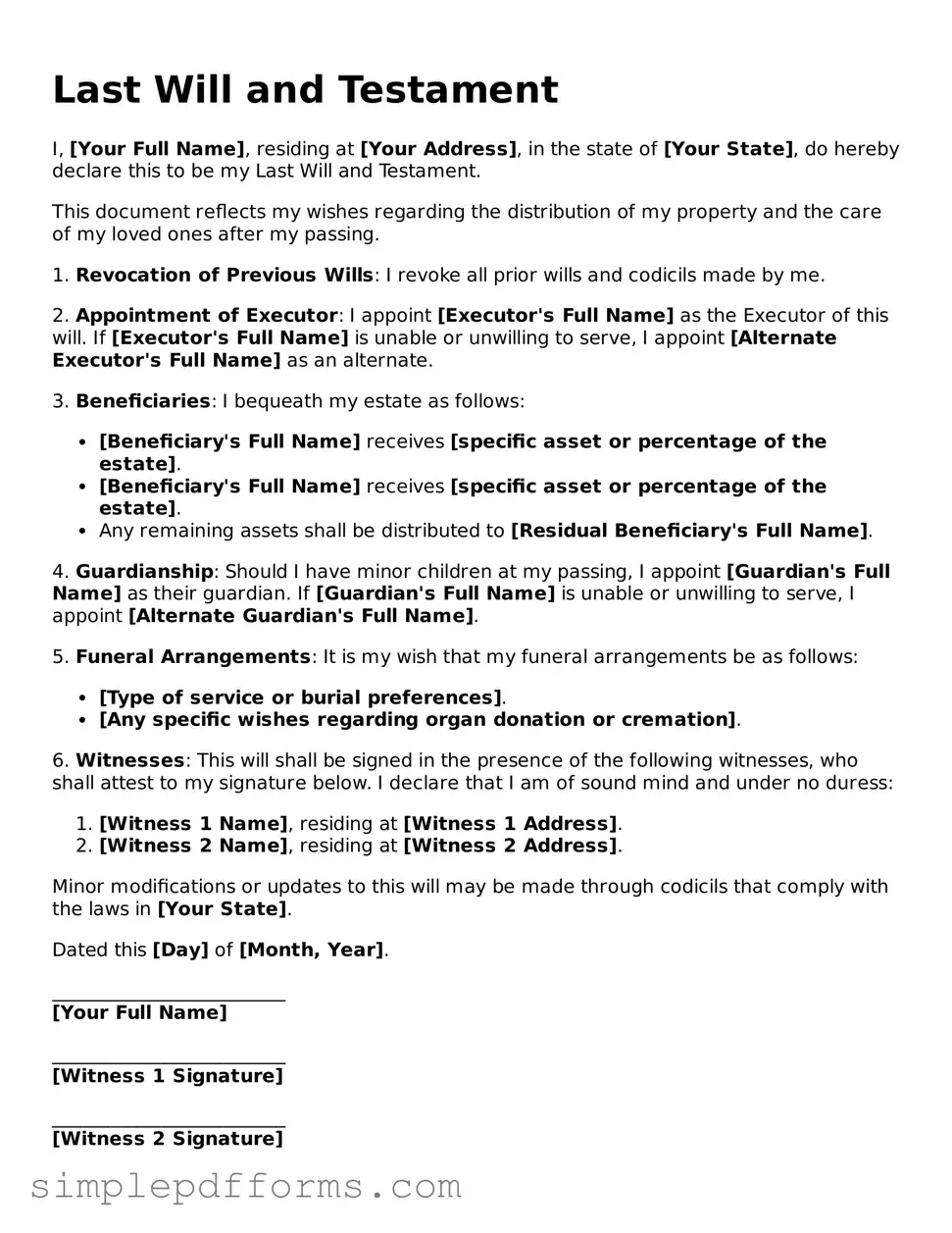Free Last Will and Testament Form
A Last Will and Testament is a legal document that outlines how an individual's assets and affairs will be handled after their death. This form allows individuals to express their wishes regarding the distribution of their property, the care of dependents, and the appointment of executors. Understanding the importance of this document can provide peace of mind for both the individual and their loved ones.
Open Last Will and Testament Editor Now

Free Last Will and Testament Form
Open Last Will and Testament Editor Now

Open Last Will and Testament Editor Now
or
Get Last Will and Testament PDF Form
Your form is waiting for completion
Complete Last Will and Testament online in minutes with ease.